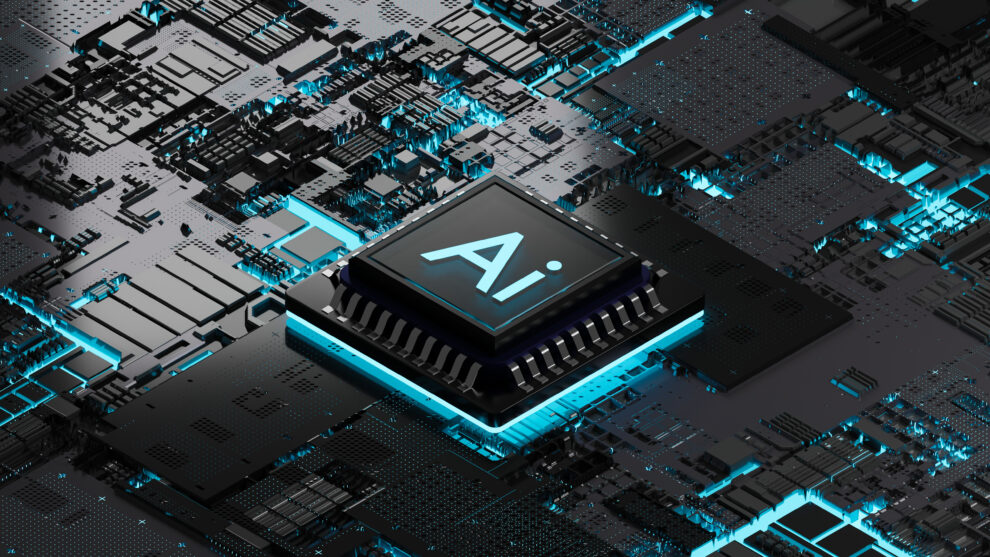Microsoft’s new Blackwell server was missing some technology from two key AI players.
In a recent post on X, formerly Twitter, Microsoft proudly displayed its first server rack featuring Nvidia‘s newest Blackwell graphic processing units (GPUs). Microsoft is believed to be the first company to receive shipments for the much-coveted Blackwell chips, and in the post it said that Azure is the first cloud provider to run on Nvidia’s Blackwell system.
It went on to say that it was leveraging InfiniBand networking and an innovative closed-loop liquid cooling system. That last statement isn’t the best news for two artificial intelligence (AI) stocks: Broadcom (AVGO 0.46%) and Super Micro Computer (SMCI -0.86%). Let’s look at the implications for these stocks.
1. Broadcom
Broadcom primarily benefits from AI in two ways: providing custom AI chips and providing network components and switches.
The company is a champion of Ethernet technology and promotes it as the the best switching solution for handling AI workloads and transferring data between GPUs. It believes that as GPU clusters grow, its Ethernet technology will be the best at helping solve the distributed-computing challenge that comes with it. Broadcom has said that it believes all hyperscalers will use Ethernet technology by the first half of next year.
However, the Azure server that Microsoft proudly displaced was not using Ethernet technology; instead it was using Nvidia’s competing InfiniBand technology, which it got as part of its acquisition of Mellanox.
Now this doesn’t mean that Microsoft won’t adopt Ethernet technology for future severs and that all hyperscalers won’t be using the technology for some of their servers next year. But Broadcom has publicly railed against InfiniBand technology, so it certainly is a knock against it when the first Blackwell server is using InfiniBand technology instead of Ethernet.
That said, I think there is room for both switching technologies, and that Broadcom is still well positioned to benefit from the huge AI infrastructure buildout. In addition, its opportunity in custom AI chips is likely the bigger one. Broadcom has been adding a number of new custom AI chip customers, as companies look to customized chips to run specific AI workloads more efficiently than can be run with general GPUs.
Going from one customer in Alphabet to now at least four is a huge opportunity for Broadcom. As such, while I think Microsoft’s Blackwell server not using Ethernet is a disappointment, the future is still bright for Broadcom.

Image source: Getty Images.
2. Super Micro Computer
While Super Micro Computer has been dealing with a number of issues including allegations from a short seller, a potential Department of Justice probe into accounting manipulation, and the delay of its annual report, the one thing it has been doing well is selling a lot of servers and racks that it assembles together. The one big advantage the company touts is its use of direct liquid cooling (DLC).
However, with its new Blackwell server rack, Microsoft is using its own closed-loop liquid cooling system. Microsoft’s data centers weren’t designed for large liquid chillers, so the company decided to design its own liquid cooling system. Microsoft is also very concerned about water efficiency, and thus designed a closed-loop system that reduces the amount of water needed for cooling.
Once again, Microsoft is just one of many companies spending on AI infrastructure, but the cloud computing giant using its own cooling technology just shows that Supermicro does not have some big proprietary DLC technology that is a must-have. This also can be seen in Supermicro’s low gross margins last quarter, which shrunk to 11.2% from 17% a year ago and 15.5% the previous quarter.
All in all, Supermicro is a low-margin company with a history of past accounting issues, whose accounting is once again being questioned. However, the recent short attack has driven the company down to a pretty inexpensive value at a forward price to earnings ratio of about 14 times current fiscal-year estimates (ending June 2025). It also should continue to benefit from the current AI infrastructure buildout that still appears to be in its early days.
Supermicro is a risky bet, but one that could rally nicely if no accounting issues are found or if they are minor. Just don’t expect the stock to return to its previous lofty levels.
Suzanne Frey, an executive at Alphabet, is a member of The Motley Fool’s board of directors. Geoffrey Seiler has positions in Alphabet. The Motley Fool has positions in and recommends Alphabet, Microsoft, and Nvidia. The Motley Fool recommends Broadcom and recommends the following options: long January 2026 $395 calls on Microsoft and short January 2026 $405 calls on Microsoft. The Motley Fool has a disclosure policy.







